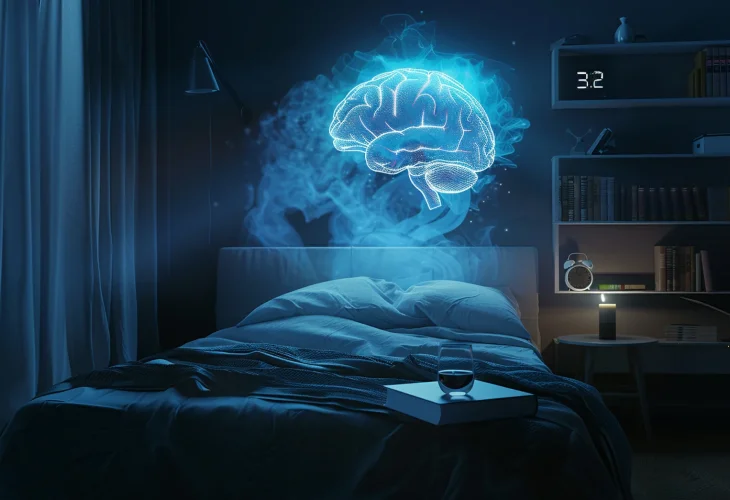Health and Nutrition
Lack of Deep Sleep Linked to Early Alzheimer’s Brain Changes
New Yale study reveals that insufficient slow-wave and REM sleep may shrink key brain regions tied to cognitive decline and dementia risk.

A new study suggests that a lack of deep sleep may accelerate the deterioration of brain regions associated with Alzheimer’s disease.
The research, conducted by Dr. Guan Zhu from Yale University, found that people who don’t spend enough time in the two deep sleep stages—slow-wave sleep (SWS) and REM sleep—experience shrinkage in a brain region known as the inferior parietal region. This area plays a key role in processing sensory information, including visuospatial data, and is among the first to be affected by the disease. “We found that the volume of this region was smaller in those with reduced deep and REM sleep,” said Dr. Zhu.
Dr. Richard Isaacson, a neurologist specializing in Alzheimer’s prevention, confirmed that the findings align with clinical observations. According to him, deep sleep is critical for clearing toxins from the brain and processing memories, and lack of it raises the risk of developing the disease.
During deep sleep stages, the brain clears out toxins and dead cells, repairing the body in preparation for the next day. REM sleep—when most dreaming occurs—helps process emotions, consolidate memories, and learn new information. Experts recommend 7–8 hours of sleep for adults, with at least 20–25% of it dedicated to deep and REM sleep. As people age, these restorative sleep stages naturally shorten, which may increase the risk of dementia.
To increase deep sleep duration, experts suggest maintaining a consistent sleep routine by going to bed and waking up at the same times every day, including weekends. Creating an optimal sleep environment that is dark, cool, and quiet, can also help, as well as avoiding alcohol and screens before bedtime.
“There’s no single medication that can fully improve sleep,” Dr. Zhu concludes. “Each person must take responsibility and work on improving their sleep habits.”

